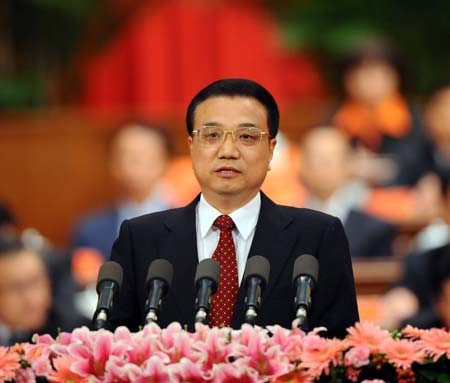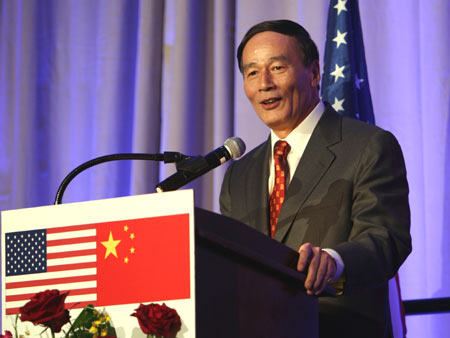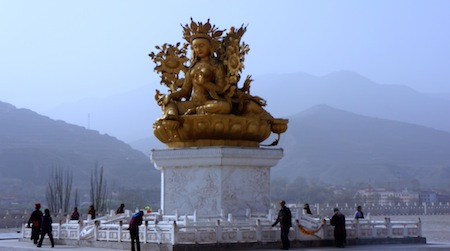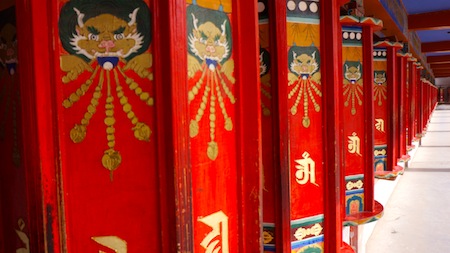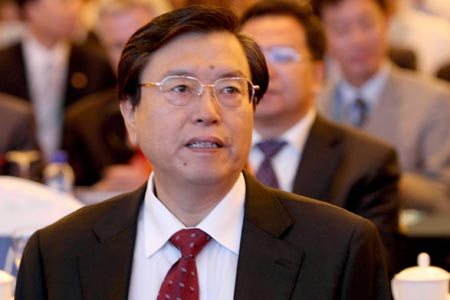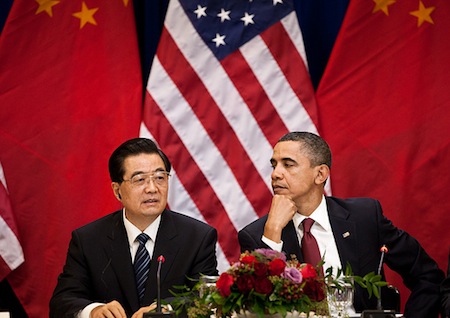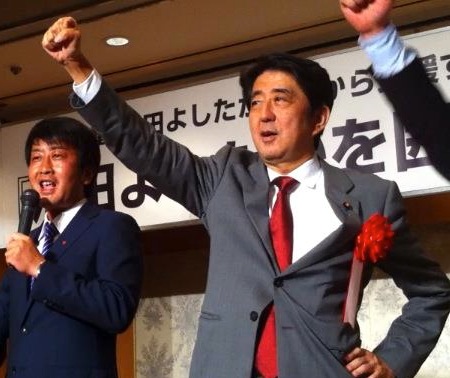This is the sixth in a series of posts examining the Chinese leaders named to the Politburo Standing Committee during the 18th National Congress of the Chinese Communist Party (中国共产党) that concluded November 14. Prior installments on Zhang Gaoli here, Zhang Dejiang here, Liu Yunshan here, Yu Zhengsheng here and Wang Qishan here.
Unless something incredibly drastic happens in the coming months, Li Keqiang (李克强) seems likely to succeed Wen Jiabao (温家宝) as the premier of the government of the People’s Republic of China at the opening of the 12th People’s National Congress in March 2013. ![]()
Along with China’s presumptive new ‘paramount leader,’ Xi Jinping (习近平), Li is one of just two of the previous nine members of the Politburo Standing Committee who remain on the committee after this week’s Congress, which concluded Wednesday. In addition to Xi and Li, five new members joined the committee (although all are over age 64, hardly making them ‘new’).
After today, however, Li is essentially the second-most important government official in all of China, and he is expected to be a cautious reformer who’s keen on narrowing economic inequality in China and widening the social safety net.
Li, as noted, has been a member of the Politburo Standing Committee since 2007 and he’s been the PRC’s executive vice premier since 2007 as well. He is also the youngest member, at age 57, on the committee.
He was a Party secretary in Liaoning, a province of 43 million people, that borders North Korea, from 2004 to 2007, spearheading a campaign to revitalize China’s northeast.
Previously, he served as the governor and the Party’s vice secretary of Henan province, China’s third most-populous province in the east-central heartland of the country with 94 million people, and one of the largest provincial economies in the country. Although Henan province’s economy grew during Li’s tenure (indeed, with an emphasis on agricultural modernization that saw rural growth exceed already-high levels of province-wide growth), he also presided over a mini-scandal involving the contamination of blood that may have infected up to one million people with HIV.
A BBC profile notes that Li has attacked corruption that has plagued the Chinese government:
A US diplomatic cable released by whistle-blowing website Wikileaks described Mr Li as “engaging and well-informed”.
In a private conversation with the US ambassador in 2007, he called China’s economic figures “unreliable” and warned that official corruption was the biggest cause of public resentment, according to the leaked cables.
That puts him at odds with Wen, whose family allegedly holds over $2.7 million assets, as reported in the past weeks by The New York Times. Hu’s speech kicking off the congress, too, emphasized the need to stem corruption in China’s official ranks.
Unlike many of the newly appointed members of the Politburo Standing Committee who are protégés of former president Jiang Zemin (江泽民), however, Li is more a protégé of outgoing current president Hu Jintao (胡锦涛), whom he encountered in the leadership of the Party’s youth league in the 1980s. With Hu stepping back from active government, however, Li may have few natural allies with a relatively older and conservative group now comprising the Politburo Standing Committee.
Cheng Li, director of research and a senior fellow at the John L. Thornton China Center, surmises that although Li lacks Wen’s political charisma, he may well be central to many key policy issues over the next decade:
Based on his previous work and the populist policy agenda he shares with his mentor Hu Jintao, Li’s hot-button policy issues will include increasing employment, offering more affordable housing, providing basic health care, balancing regional development, and promoting innovation in clean energy technology.
Interestingly, Li’s wife, Cheng Hong, is a professor of English language and literature in Beijing, and Li himself is fluent in English, just as fellow Politburo Standing Committee member Wang Qishan.
Like Xi, he spent time during the Cultural Revolution working in rural China, on a farm, and like Xi, Li also has a doctorate — in Li’s case, in economics.
